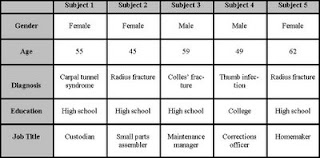On the occupation of blog editing

I get dozens of emails daily from readers and I generally enjoy them all. I try to respond to most emails. Sometimes I get comments directly on the blog but those are more rare. I guess that many people prefer anonymity and that is fine. Many of the comments are from anonymous people and I am frequently torn about whether or not I want to advance their comments. For example, someone may agree or disagree with something that I have written and they want to advance their own opinion on it - but they don't want to put their name with their comment. This is easily fixed by disabling anonymous comments but some of the most thought-provoking comments are anonymous. All my life I have been fascinated by anonymous self expression - like carving into picnic tables or graffiti or on publicly posted leaflets or pamphlets. That is a topic for another day. Many of the comments that never get published here are links to people's proprietary websites that sell products and I never wante...


